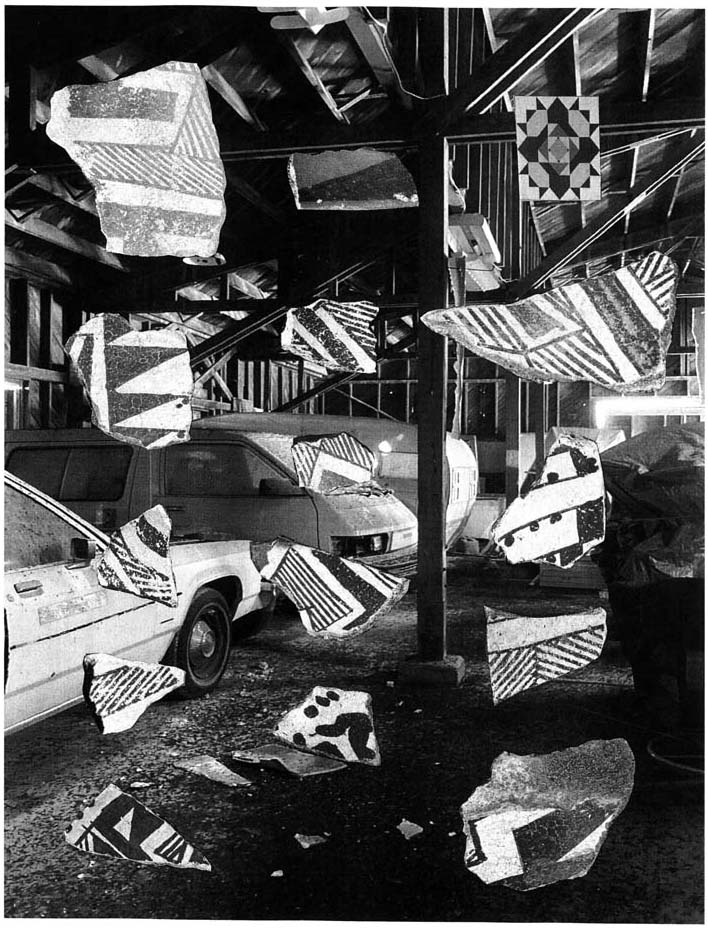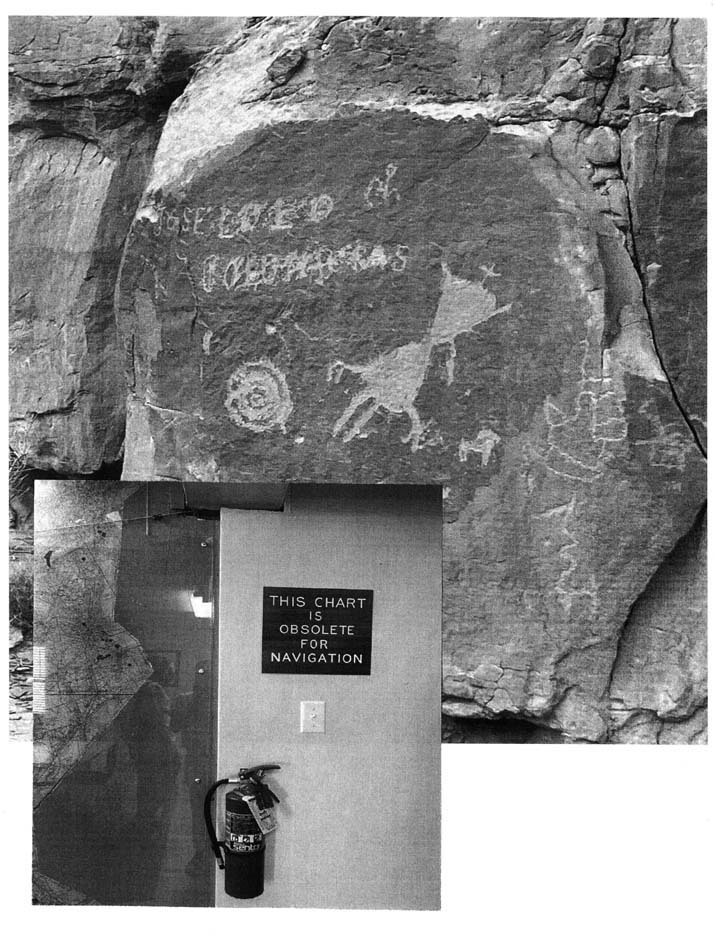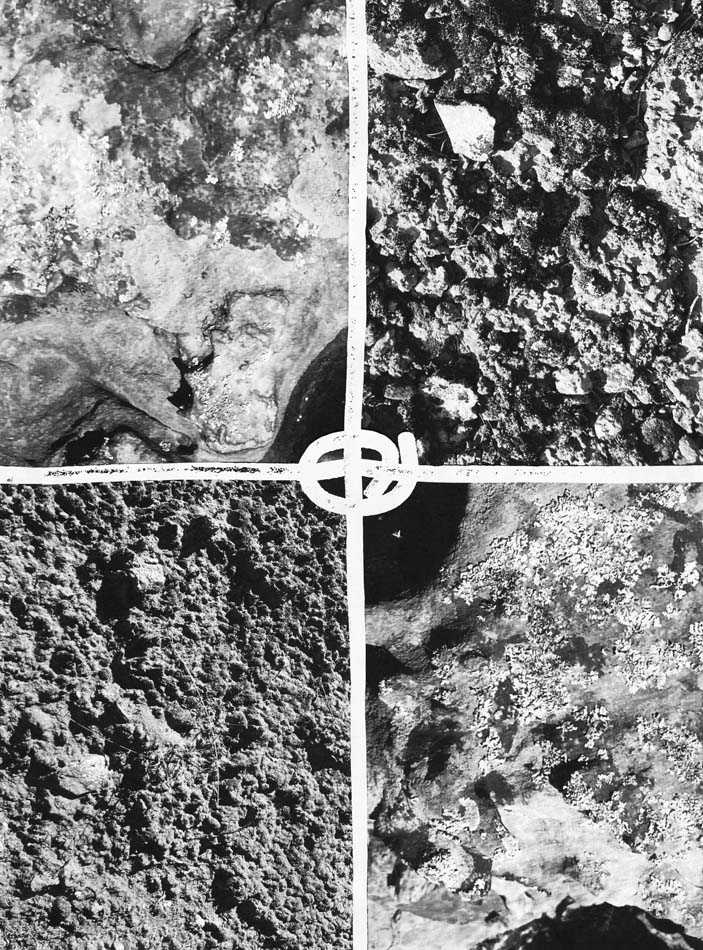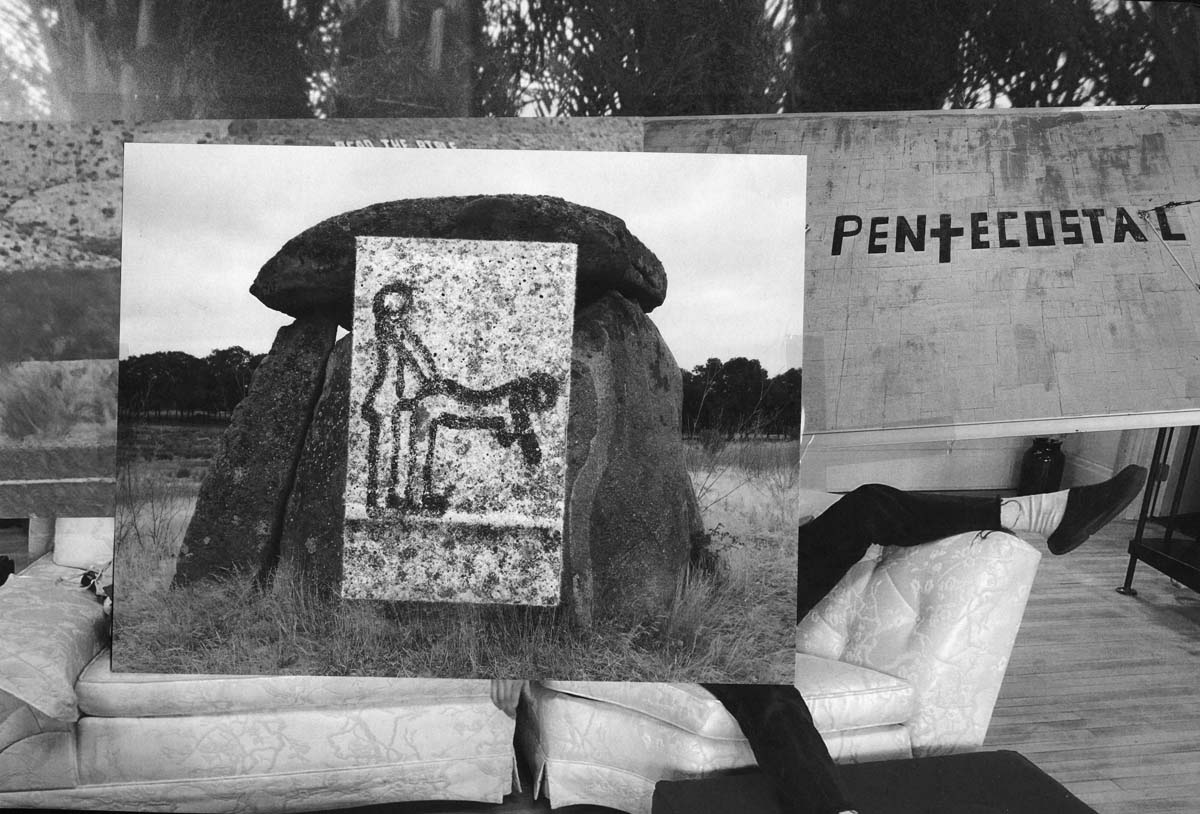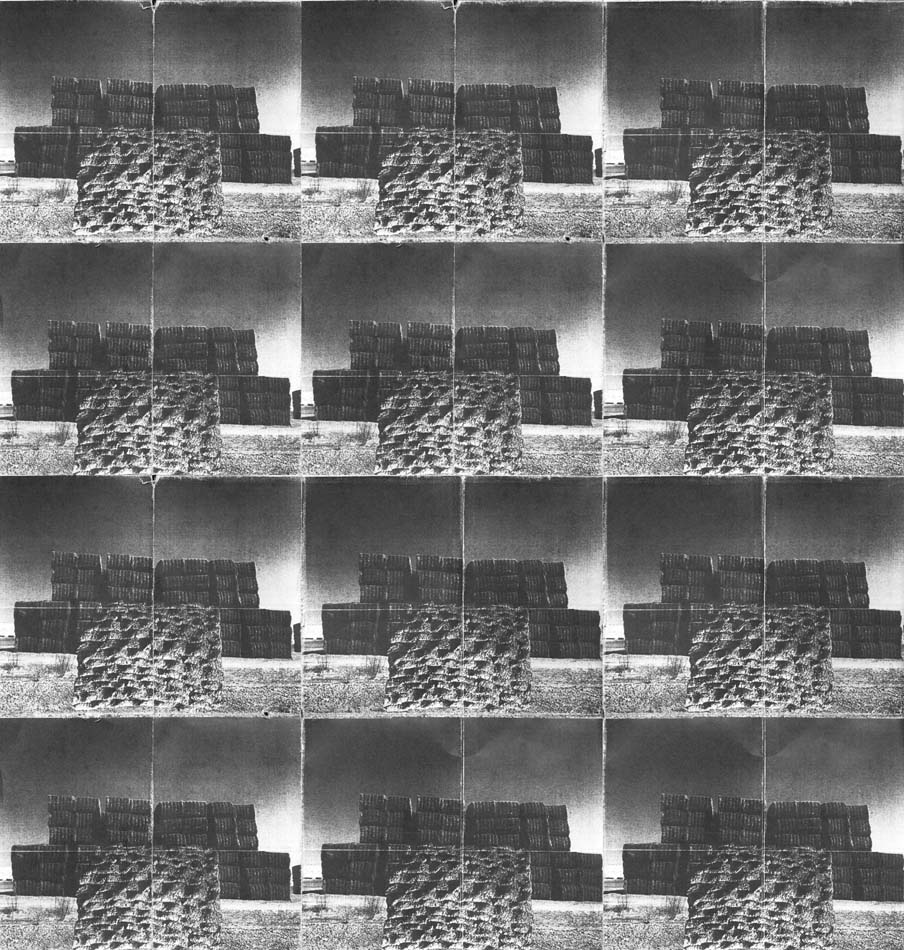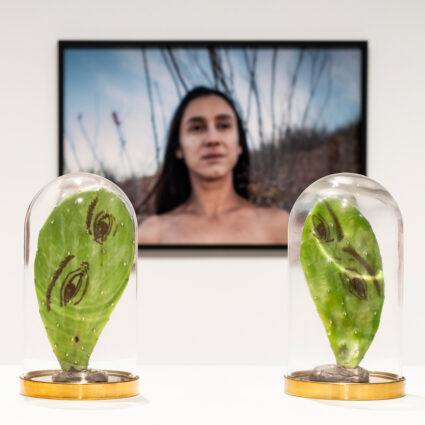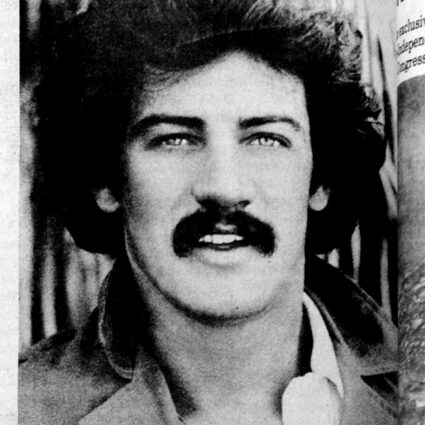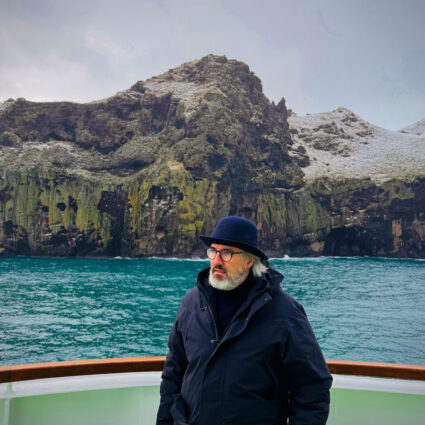Wills Brewer’s practice is rooted in research and documentation, emphasizing history at its most expansive, geologic scale.
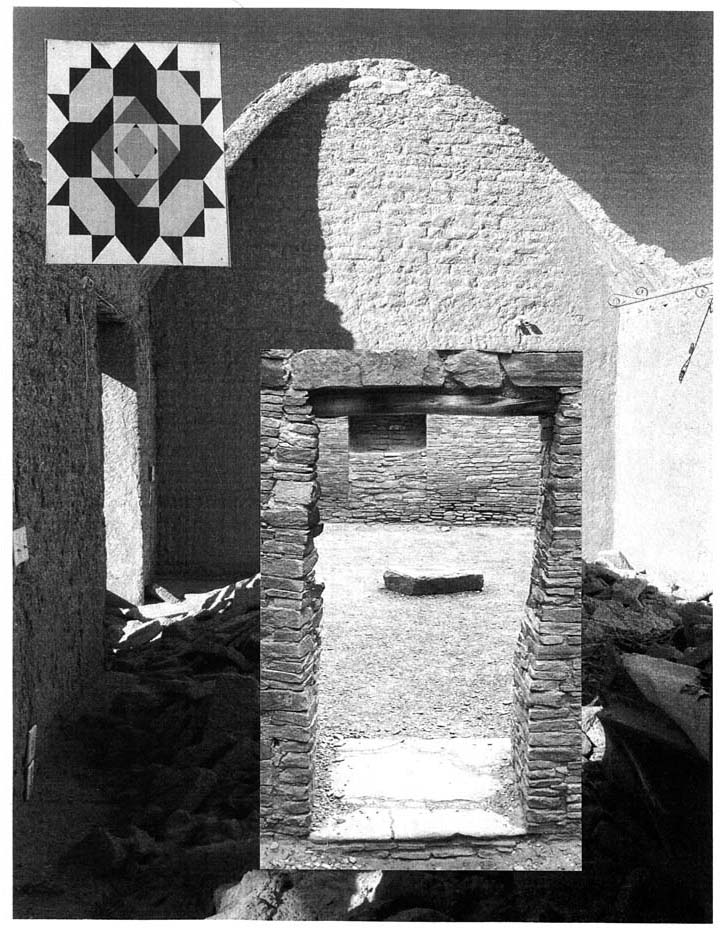
Yucca Valley, California | Marfa, Texas | willsbrewer.com
Intention alters our understanding of the world. It’s what makes California California, for example, instead of a boundless expanse of land. It distinguishes a city park from private land, a piece of public art from the décor of a corporate lobby. In Oklahoma-born, Texas- and California-based artist Wills Brewer’s (Cherokee Nation) work, he interrogates the gulf between intention and reality, expression and interpretation, particularly across “the West,” whose “endless constructs,” as he puts it, offer rich territory to investigate in his photographic collages.
Brewer’s practice is rooted in research and documentation, emphasizing history at its most expansive, geologic scale. In Takes a Village (2022), Brewer lays an image of an intact stone doorway that opens to an earthen floor with a metate in its center over another image of an open-roofed adobe building, pieces of itself in ruin in the foreground. The piece is a passage, a portal somewhere—perhaps to the past? Or is it somewhere out of time entirely? “Everything is in relation and out of causality,” Brewer offers in an artist statement. Every step through the landscape, then, every gesture toward understanding it, is part of an exchange. And what makes the conversation interesting are the intentions and actions we bring to that space.
In this recent cycle of work, human meaning and the ultimate influence of nature are given equal footing, mingling in the measureless expanse of time. Brewer’s work sits in a complicated space where the only thing that endures is change. The ocean rounds every pebble, buildings crumble, and the world keeps moving. The most fitting path forward, then, is “taking one step back,” as Brewer puts it, grounding ourselves in what is, even as it shapes itself into something new.
